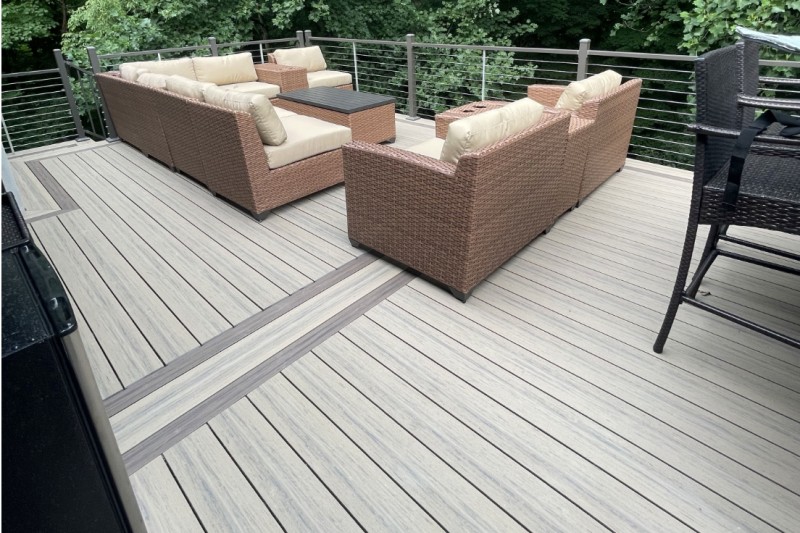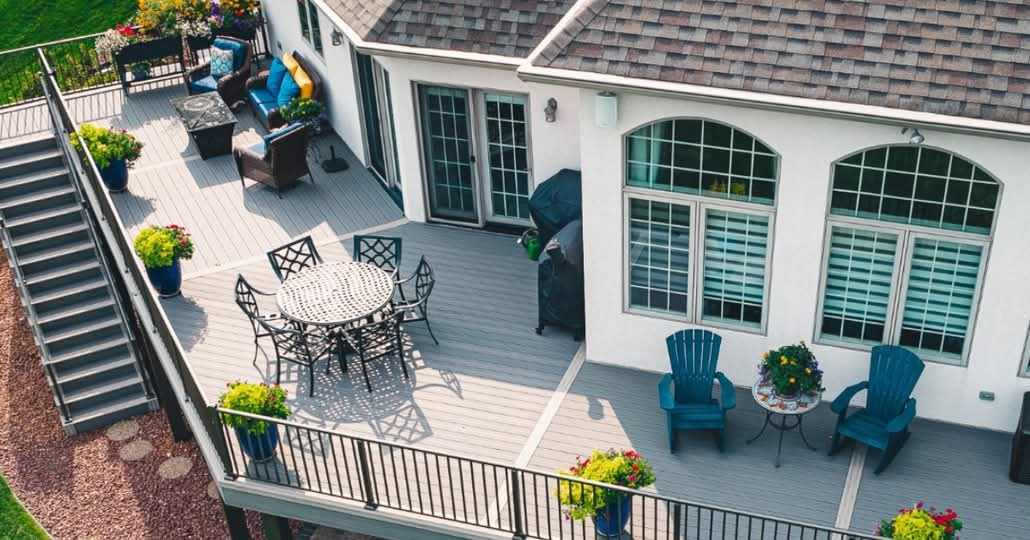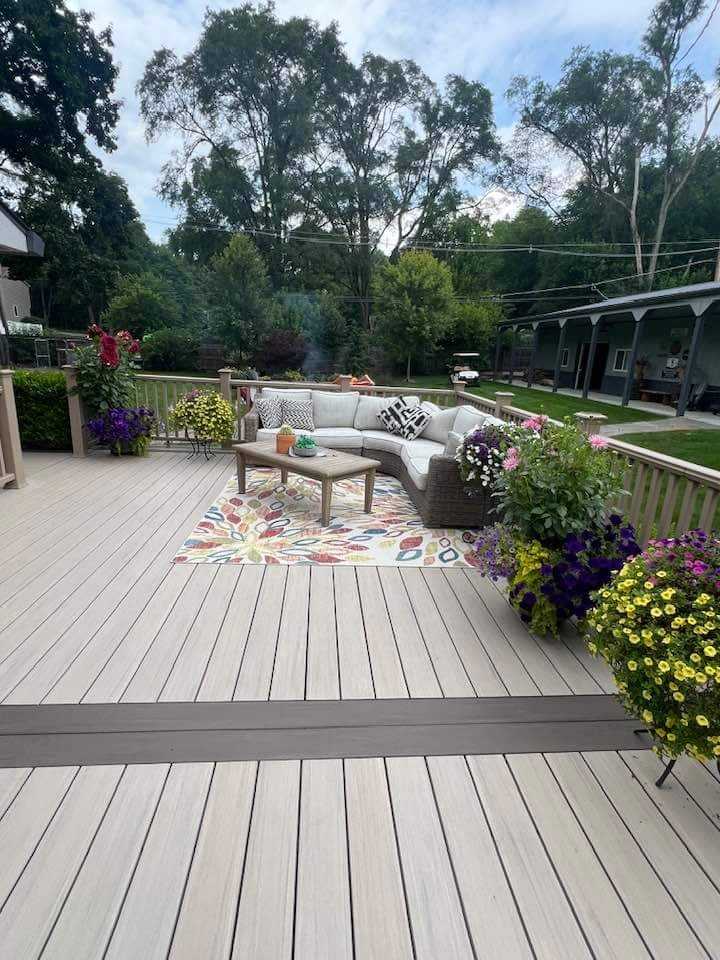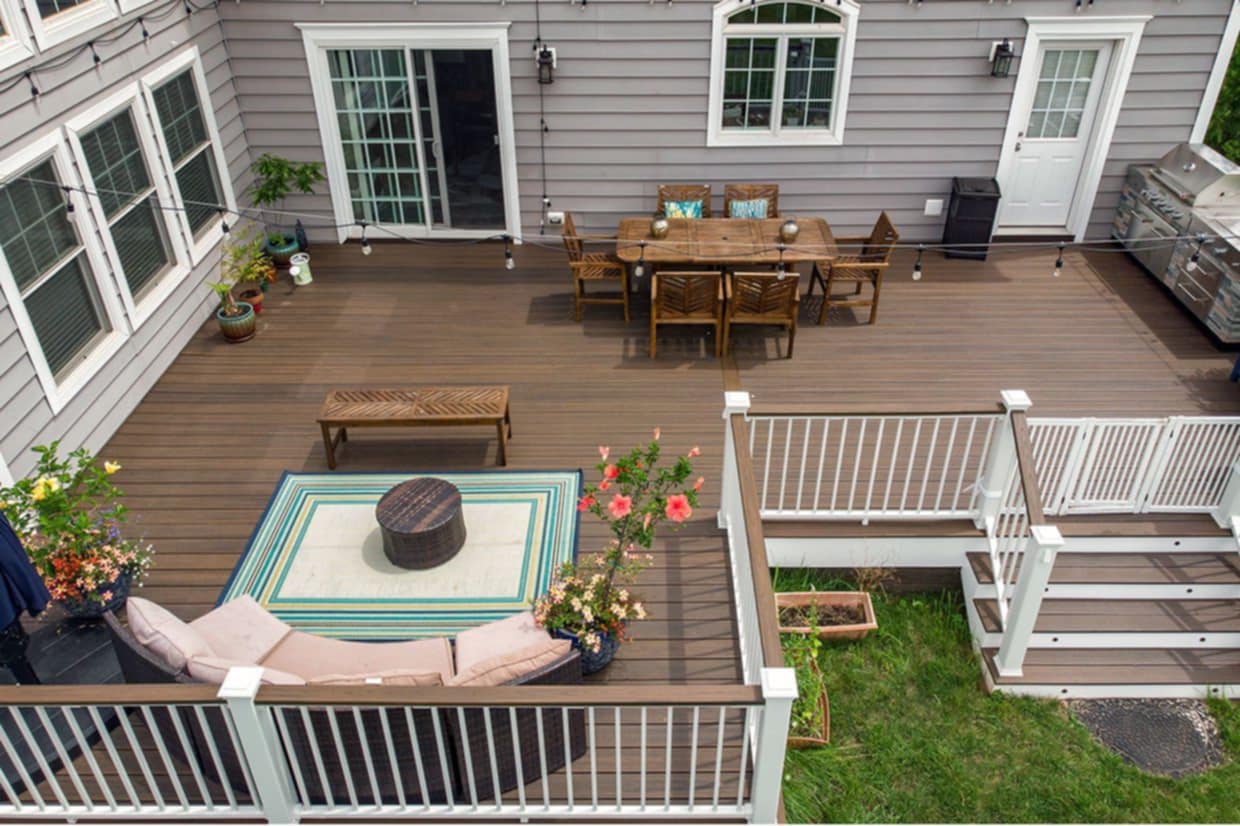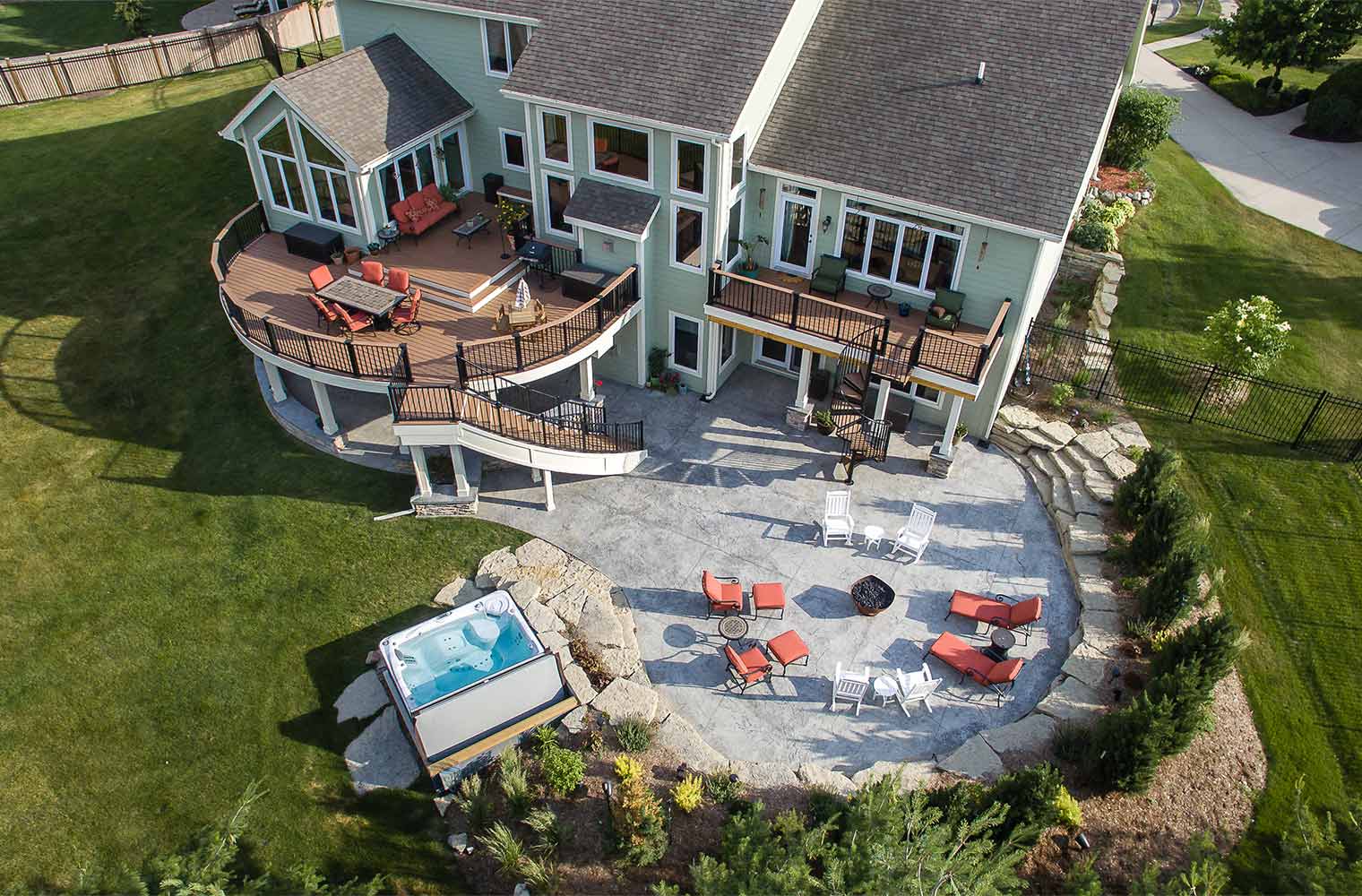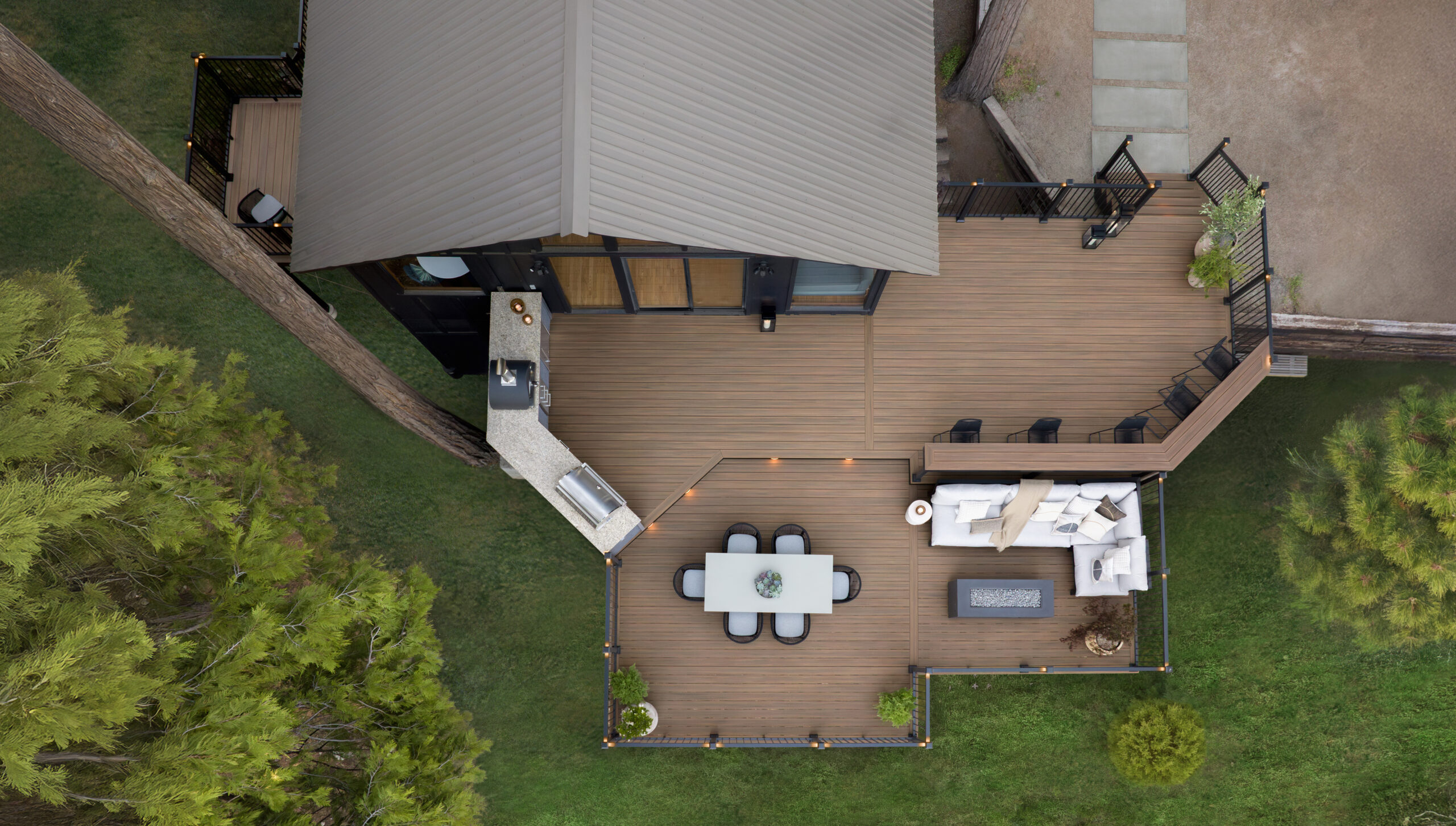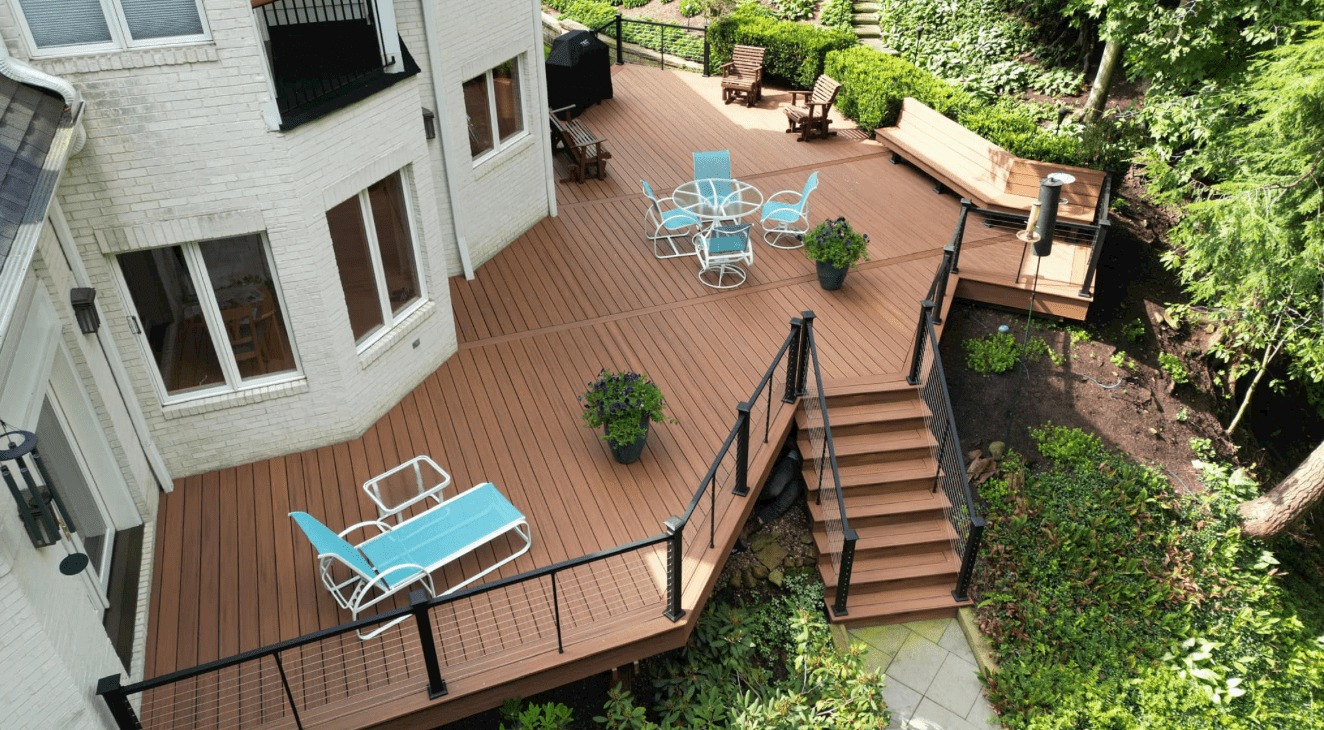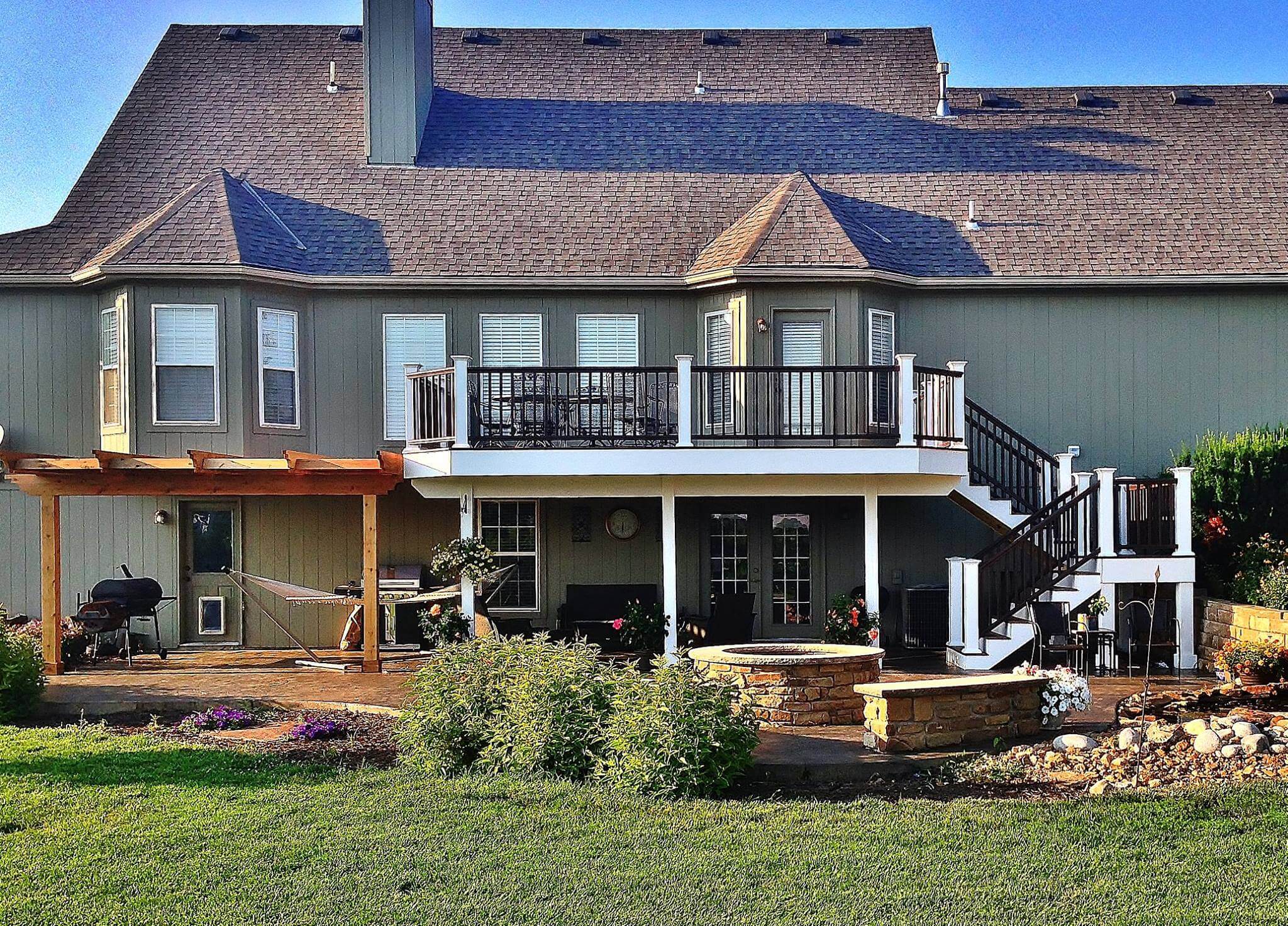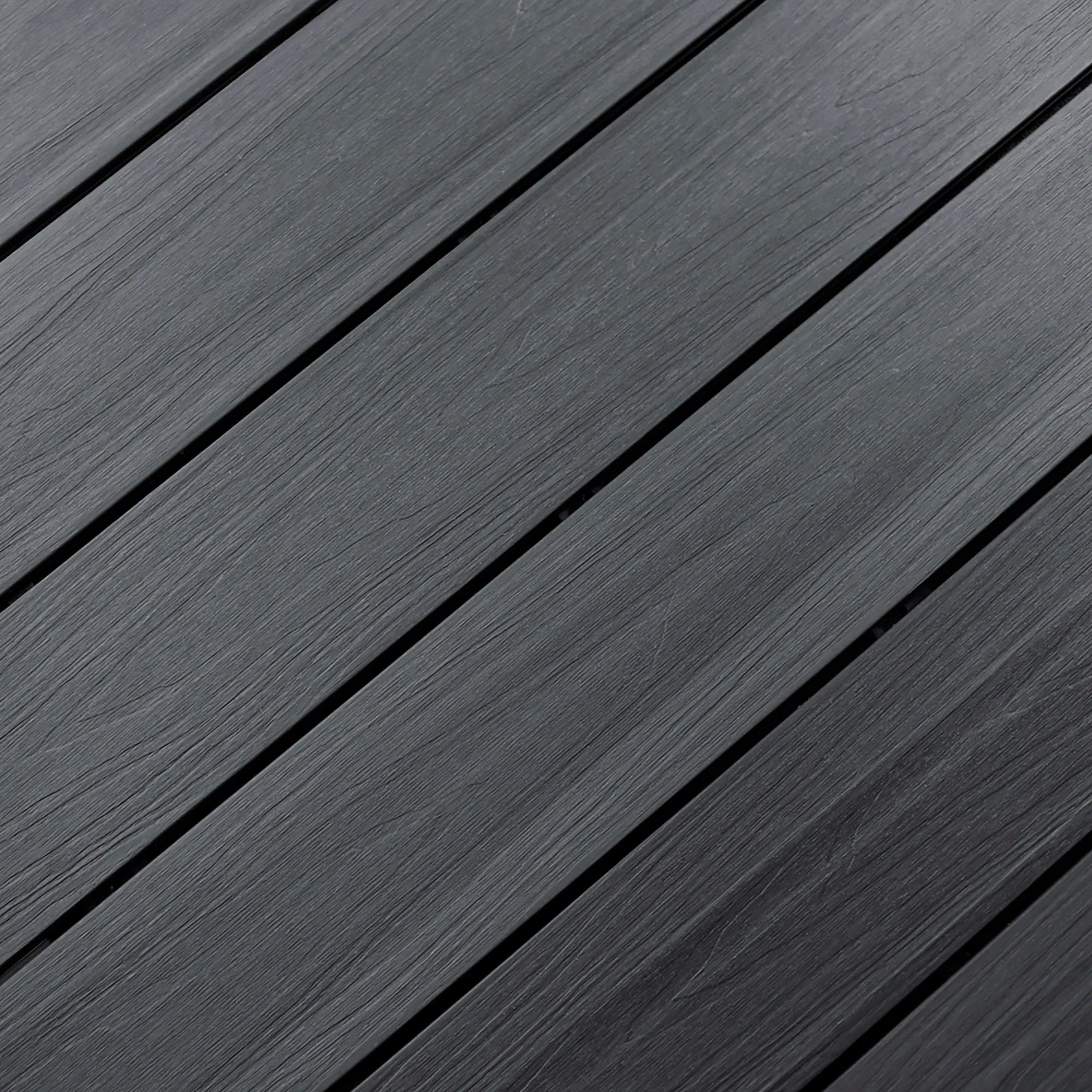One of the first things that surprises homeowners when they start comparing quotes for a new deck is how much more or less it costs to use composite or wood. It can cost almost four times as much to build a composite deck as it does to build a regular pressure-treated wood deck. That difference in price makes people ask, “Why?” a lot.
The answer is much more than just the cost of the boards. The higher price is because of the better materials, the engineering that went into the product, the longer warranties, and the professional installation standards that need to be followed to make sure it lasts. If you look at the whole picture, a composite deck is a long-term investment, not just an upgrade to make your home look better.
The Material Itself Costs More to Produce
Composite decking is a manufactured product made from recycled plastic, wood fibers, and protective polymers. Every board goes through multiple steps: mixing, extrusion, embossing for grain texture, capping, and cooling. These processes require advanced machinery and strict quality control.
Wood, by comparison, is simply milled, treated with preservatives, and cut to size. It is a raw material with minimal processing, which keeps the cost lower.
Modern composite boards, especially premium lines like Deckorators Voyage or TimberTech Advanced PVC, use materials that eliminate organic content and moisture absorption altogether. These advanced formulations are more costly to create but provide decades of durability, stability, and color retention.
The Framing Must Meet Higher Standards
Composite decking is heavier and more dimensionally stable than wood, which means it often requires framing that meets tighter tolerances. The joists must be spaced correctly,12 inches on center for certain boards and the structure must be perfectly level to avoid movement or noise over time.
When installing composite, builders also use upgraded fasteners, corrosion-resistant hardware, protective joist tape, and ventilation spacing to protect the structure beneath. These details add both labor and material costs, but they ensure the deck performs as designed for decades.
Wood decks, on the other hand, are more forgiving during construction and can use less expensive hardware without affecting short-term stability.
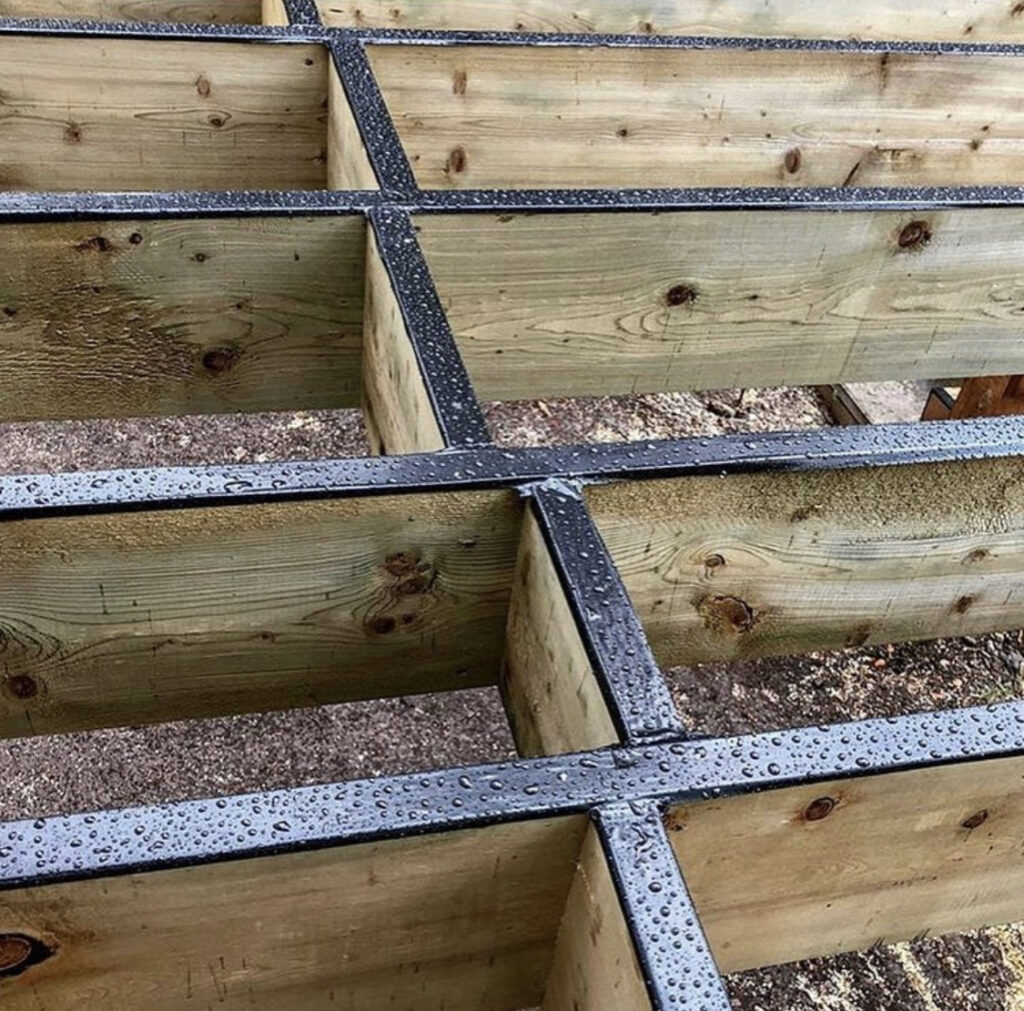
Maintenance Is Where the Real Cost Difference Appears
On paper, a pressure-treated wood deck looks cheap, but it costs more and more to keep up each year. Cleaning, sanding, and staining or sealing wood on a regular basis will keep it from rotting, warping, and splintering. Most wood decks last between 10 and 15 years before they need major repairs or to be replaced completely, even with regular maintenance.
You don’t have to stain or seal composite decking, on the other hand. It doesn’t fade, warp, mold, or get eaten by bugs. You only need to wash it with mild soap and water once or twice a year. Most high-quality composites come with a warranty that covers fading and staining for 25 to 50 years.
The balance changes a lot when you look at long-term costs. The ongoing maintenance and replacement cycles of a wood deck often cost more than the one-time cost of composite decking over a ten-year period.
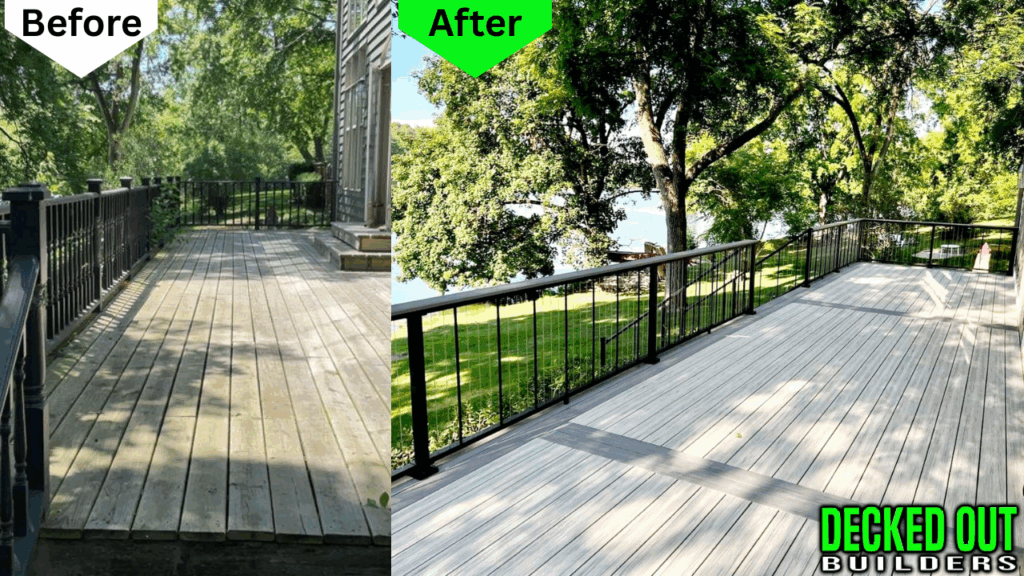
Labor and Installation Expertise
Composite decking requires precise installation to maintain warranties and prevent future issues. Boards expand and contract with temperature changes, and every manufacturer provides specific spacing, fastening, and ventilation requirements.
Professional installers follow these guidelines closely using hidden fastener systems, specialized clips, and matching fascia trim for a finished appearance. Experienced installers also include breaker boards, picture framing, and mitered corners to prevent gaps and keep seams tight.
Wood decks are easier for less experienced contractors to build quickly, but that lower labor cost often means sacrificing craftsmanship, long-term stability, and appearance.
Warranty and Quality Assurance
Wood decking comes with no manufacturer warranty. Once installed, the responsibility for care and repair falls entirely on the homeowner.
Composite decking offers long-term peace of mind through structural, fade, and stain warranties. Brands like Deckorators include a 50-year structural warranty and even labor coverage for certain product lines. TimberTech Advanced PVC carries up to a lifetime structural warranty. These warranties ensure that if the boards fail, the manufacturer replaces them, a level of protection no lumber yard can provide.
Longevity and Aesthetics
Composite decks maintain their color, shape, and structure for decades with minimal upkeep. Wood decks begin to show aging almost immediately after installation. UV exposure causes fading and cracking, and water penetration leads to raised grain and splintering.
Many homeowners replace their wood decks within 10 to 12 years due to safety or appearance issues. Composite decking maintains its beauty far longer, with modern color technology that mimics natural hardwoods without the constant upkeep.
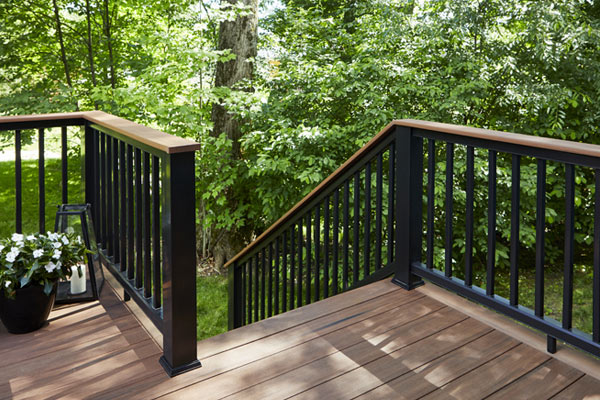
Why the Investment Makes Sense
While the sticker price of a composite deck may cause hesitation, it’s important to think in terms of lifetime cost rather than initial cost. The higher upfront investment delivers:
- Decades of durability and color retention
- No need for staining or sealing
- Increased home resale value
- Long-term structural stability
- Strong manufacturer warranties
You pay more in year one, but you save time, maintenance, and replacement expenses for decades.
If you plan to stay in your home, composite decking becomes the more economical choice over time and it delivers a cleaner, safer, and more attractive outdoor living space.
When comparing deck quotes, make sure you look beyond the price tag. The difference comes down to craftsmanship, materials, and longevity.
If you’d like help understanding the cost differences for your home, we can walk you through materials, finishes, and long-term maintenance expectations for both composite and wood options.
Schedule Your Deck Consultation | 815-900-5199


